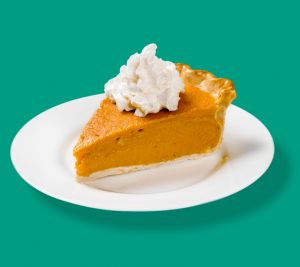By Lacie Blankenship
As winter approaches, Christmas music takes over retail stores, and winter wishlists are dominating social media feeds. It’s only a matter of time before cravings for those time-honored recipes passed down through generations start to tingle. From sweet potato casserole to jambalaya to pumpkin pie to latkes, cherished feasts are the focal point of celebrations for many. Yet, amidst these beloved comfort foods lies potential challenges to some personal health and nutrition goals. Navigating culinary abundance during the festive season can be daunting to many. Kelly L. Haws, an expert in food decision-making and consumer behavior, advises those aiming to eat healthy in the coming months.
Keep balance in mind
 Amidst the joyful celebrations of the holiday season, maintaining a sense of balance in your eating habits can be the key to enjoying the time without sacrificing your health or pleasure. In research, Haws, Anne Marie and Thomas B Walker Chair and Professor of Marketing at Vanderbilt Business, explores the intricate relationship between consumer perceptions and eating habits. The study, part of a special edition of JACR, finds that taste is the lead consideration when making eating decisions, followed by hunger, cost, nutrition, and health.
Amidst the joyful celebrations of the holiday season, maintaining a sense of balance in your eating habits can be the key to enjoying the time without sacrificing your health or pleasure. In research, Haws, Anne Marie and Thomas B Walker Chair and Professor of Marketing at Vanderbilt Business, explores the intricate relationship between consumer perceptions and eating habits. The study, part of a special edition of JACR, finds that taste is the lead consideration when making eating decisions, followed by hunger, cost, nutrition, and health.
“It’s important for consumers to not put too many restrictions on themselves, and to instead think carefully about approaching eating in a way that allows them to balance pleasure and indulgence with fueling the body to feel healthy, energetic, and strong.”
Finding harmony between savoring traditional holiday delicacies and the objective of nourishing the body is the goal. Haws encourages individuals to self-assess with a simple question, “Are you eating to fuel your body?”
“I think that perception drives [food] decision-making more than any kind of actual nutritional profile,” she says.
Play with your food
 While it may not pass for polite, playing with your food is one way to accommodate your nutritional goals if they include portion control. If you’re a “phone eats first” person, just be sure to take a picture of your plate before you start playing in it!
While it may not pass for polite, playing with your food is one way to accommodate your nutritional goals if they include portion control. If you’re a “phone eats first” person, just be sure to take a picture of your plate before you start playing in it!
Research co-authored by Haws and Freeman Wu, Assistant Professor of Marketing, revealed an intriguing insight: degrading the visual appearance of food can accelerate the rate of fullness; this means that a messy plate might make you feel fuller faster than an aesthetically pleasing presentation.
“Eating messily, although it doesn’t align with proper etiquette, is an easy strategy for consumers trying to combat overconsumption, especially when presented with a buffet of festive foods,” says Haws.
Take a moment
 Taking a mindful moment to consider the meal, whether while fixing a plate or raising a fork, can create space to consider the food’s significance. While the holiday season signifies culinary delights for many, the actual sentiment behind the food is more about who prepared the meal, and the cherished company gathered around the table.
Taking a mindful moment to consider the meal, whether while fixing a plate or raising a fork, can create space to consider the food’s significance. While the holiday season signifies culinary delights for many, the actual sentiment behind the food is more about who prepared the meal, and the cherished company gathered around the table.
“By slowing down while selecting foods and actually eating, we might find that we are able to achieve the pleasure that we are looking for out of our holiday favorites without eating it in an excess quantity,” says Haws.
It’s not merely the act of eating but the entire meal experience that enriches the holiday season. “People can ask themselves, ‘Am I truly enjoying this experience? Sometimes that experience is enhanced simply by those around us eating, or even who prepared the food for us,” says Haws.
Remember, amidst the winter holiday season, acknowledging your efforts to maintain a balanced approach and to eat healthy is commendable. Finding a middle ground between enjoyment and health is an accomplishment in itself!